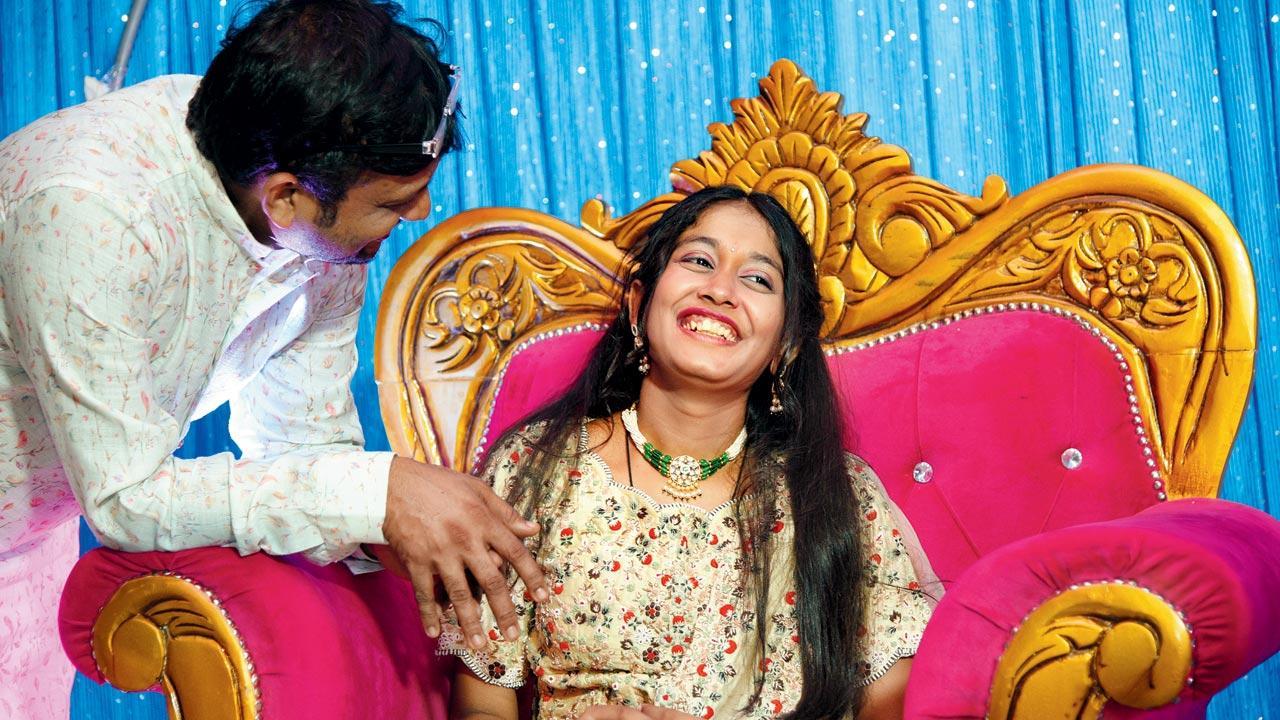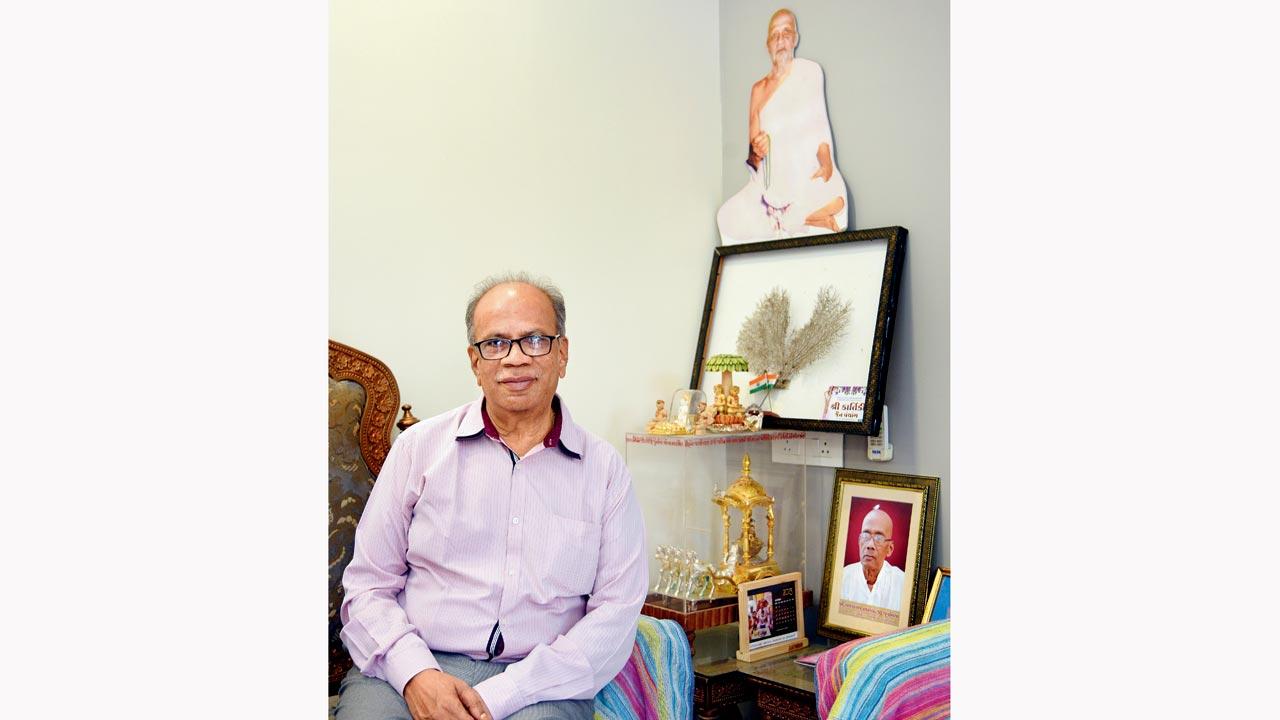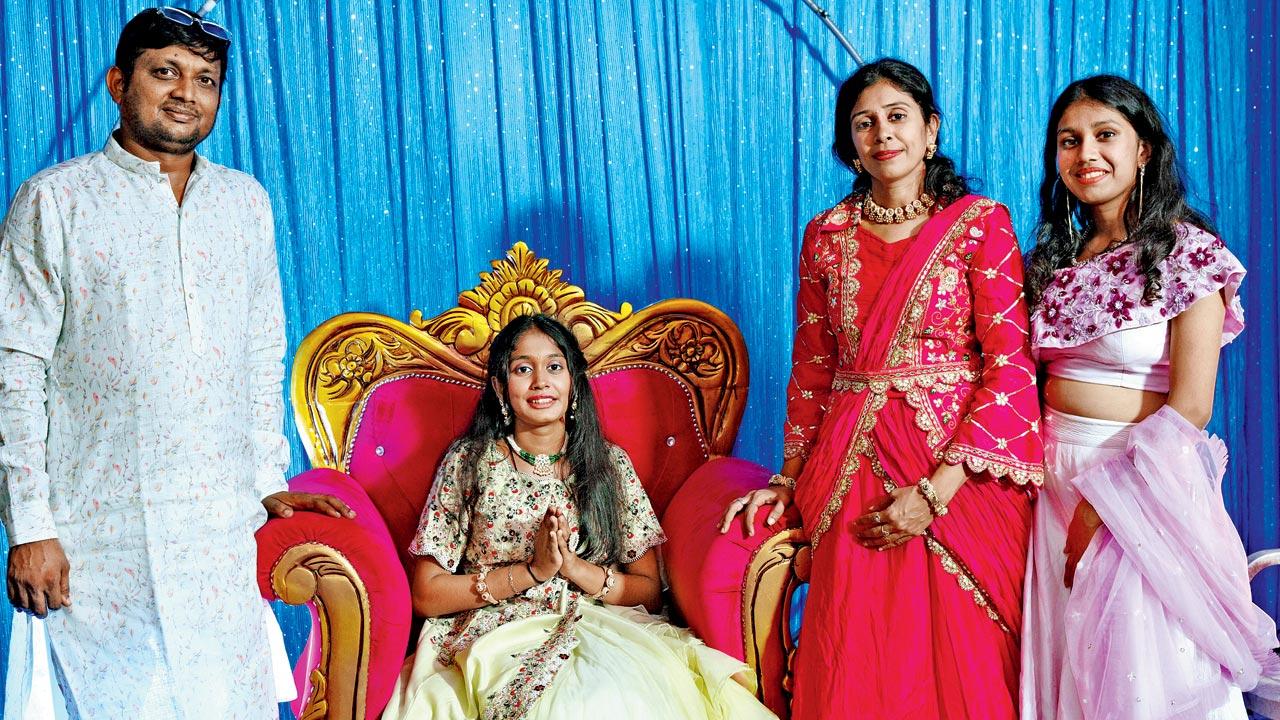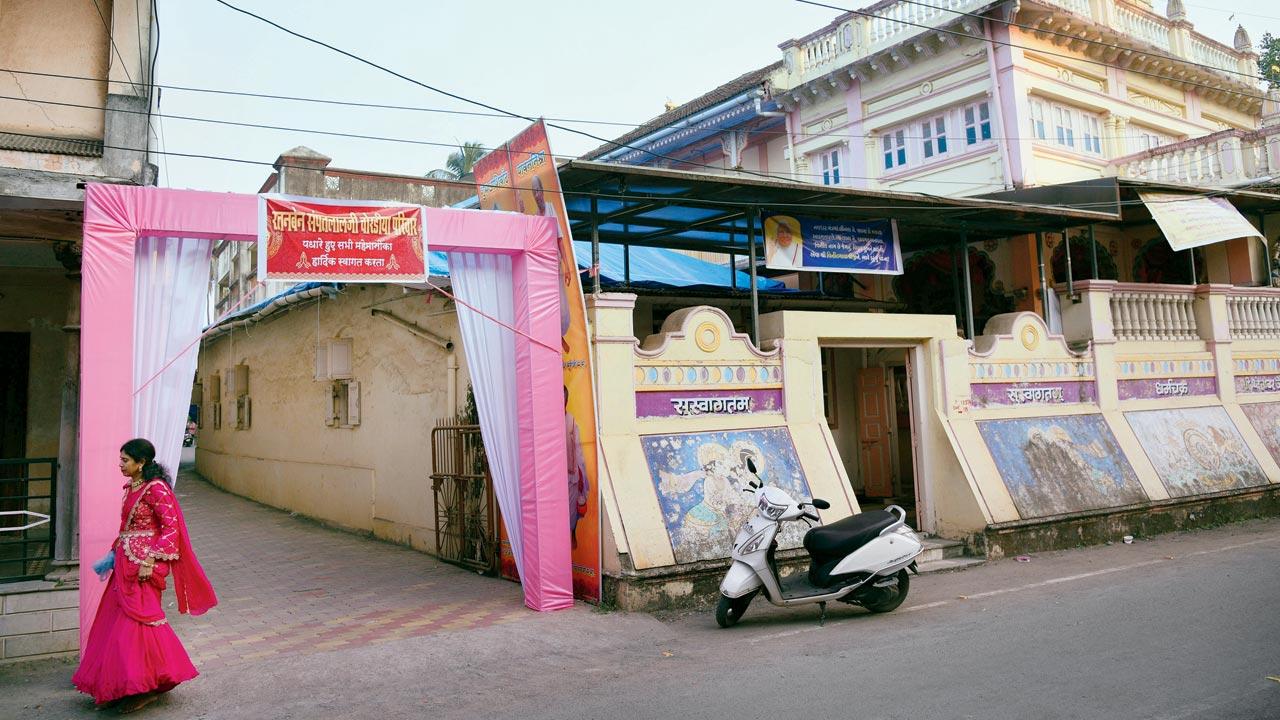A 13-year-old Jain girl from Dahanu represents the fourth generation in her family to accept diksha or monkhood. mid-day spends an afternoon with the Punamiyas and comes away feeling enlightened

Thirteen-year-old Keli Punamiya represents the fourth generation of her family to accept diksha, a life of extreme austerity and wandering monkhood for spiritual growth. Pics/Satej Shinde
If there is only one feeling that the Punamiya residence exudes, it has to be peace. The three-storey bungalow is tucked away in a row of houses in a lane near the Dahanu railway station in Palghar district. The entrance is decorated with a mandap and workers are adding the final touches. But despite all the activity, Tilak Tirth is an oasis of calm in the busy commercial-cum-residential area.
ADVERTISEMENT
With ‘tirth’ or pilgrimage site in its name, the influence of religion and spirituality is apparent all over the house. The head of the house, Dr Prakash Punamiya’s books on religious and spirituality are strewn about the living room. His nephew is named Punyapal, the keeper of good deeds; and Punyapal’s son is Mokshesh, a personification of the concept of moksha—freedom from the worldly cycle of birth and death.
 Keli’s grandfather, Dr Prakash Punamiya, recalls how his father started the tradition by accepting diksha at the age of 52, which was followed by the next two generations
Keli’s grandfather, Dr Prakash Punamiya, recalls how his father started the tradition by accepting diksha at the age of 52, which was followed by the next two generations
And yet, the 69-year-old doctor is not just pious, he is equally scientific and philosophical. Born and brought up in the coastal town, Punamiya finished MS and MBBS at the BYL Nair Hospital in Mumbai before going back home to set up a hospital there. His gentle eyes underline the family tradition: Sacrifice and detachment from worldly pleasures.
“My father was 52 years old when he accepted diksha and became a wandering monk,” he says. “He was a poor farmer who toiled hard, saved every penny and built his fortune from scratch. After we were born and were growing up, he stopped to think. He realised that he had achieved everything he needed in life, and that whatever he wanted from here on would just be desires, not needs. He decided to free himself from the endless cycle and focus on spiritual growth by accepting diksha.”
 Keli, the younger daughter of Punyapal and Aastha Punamiya, will accept diksha at a grand ceremony on December 1
Keli, the younger daughter of Punyapal and Aastha Punamiya, will accept diksha at a grand ceremony on December 1
That simple word belies the depth of a life of chastity and hardship that follows once you set foot on the path. Accepting diksha begins by renouncing the first thing you ever called your own: Your name. Under a new name, you take five sacred vows or mahavrats: Ahimsa, to never harm anybody physically or psychologically; Satya, to always speak the truth; Asteya, never steal anything; Brachmacharya, celibacy not just in the physical sense but also complete freedom from desires; And Aparigraha, never owning or claiming anything as belonging to you.
“The beauty of these vows,” explains Punamiya, “is that their meaning is not absolute. Satya does not mean you speak the truth no matter what; it means stopping to think whether speaking the truth would lead to anyone being hurt or harmed. If you see a deer running past and a hunter asks you where it went, telling the truth could lead to the deer’s death. Which means you break your vow of ahimsa. Similarly, astya isn’t just limited to the actual act of stealing—you can’t even pick up something lying on the road because that does not belong to you.”
 The beach town of Dahanu has a thriving Jain population, with several derasars and communities spread out over the town, the Punamiyas themselves having lives here for over 150 years
The beach town of Dahanu has a thriving Jain population, with several derasars and communities spread out over the town, the Punamiyas themselves having lives here for over 150 years
After his father, Punamiya’s eldest brother’s son became a dikshit 42 years ago, aged just eight. His second brother’s son followed. Around 17 years ago, Punamiya’s own son, Tirthesh, walked in their footsteps. The women, too, have kept the tradition alive, including Punamiya’s sister-in-law and six nieces, at different ages ranging from late childhood to early teenage.
Now his 13-year-old granddaughter, Keli, is set to follow in the path of her elders by accepting diksha on December 1.
“It is simply something I always knew I wanted to do,” Keli tells mid-day matter-of-factly. “I have grown up in an atmosphere where diksha is revered more than anything else and it didn’t take any time or determination to make up my mind.” The precocious teen is still shy while interacting with people and turns to her father, Punyapal, for help to answer our questions. “It is simply tradition,” Punyapal adds. “Over 300 people are coming from all over Maharashtra and Gujarat to attend Keli’s diksha ceremony. We are all so proud of her.”
The five mahavrats are followed over a lifetime by a wandering monk. A dikshit or dikshita cannot sleep anywhere except in ashrays or shelters designated for them in derasars. These have no beds, mattresses, fans or air-conditioners. They sleep on thin sheets, and wear only white unstitched robes. There are no stoves to cook on either. A dikshit/a is supposed to go around the area, seeking bhiksha to meet his food needs for the day. Even this is governed by a principle called gochari—the way a cow grazes; or madhukari—the way a bee gathers honey from flowers. The dikshit/a must collect small amounts from various households, so that donors are not burdened. They cannot stay in one place for more than two to three days at a time, except during the holy chaturmaas in monsoon, when they don’t travel lest they harm the insects that come out due to the rains.
“There are rules of interpersonal interaction as well,” Punamiya. “A dikshit/a may interact with family members, but no longer as a relative. They cannot address their parents as ‘maa-baba’ or their siblings as didi-bhaiyya.”
As we near the end of our extremely enlightening conversation, Punamiya’s grandson—Keli’s brother—comes running in and jumps onto his lap. The nine-year-old is named Heet or welfare.
“He is too young to be happy or unhappy about Keli’s decision but he has accepted it,” Punamiya tells us. “Happiness,” he adds, “is relative. If you win R10 crore in a lottery tomorrow, you will be happy, yes?”
Of course, this writer thinks, fingers crossed.
“But if he,” Punamiya continues, gesturing towards our photojournalist, “wins R20 crore on the same day, your Rs 10 crore will bring you more sadness than joy?”
As much as we hate it, we have to agree. “And this,” the wise doctor smiles, “is exactly what diksha frees you from.”
 Subscribe today by clicking the link and stay updated with the latest news!" Click here!
Subscribe today by clicking the link and stay updated with the latest news!" Click here!







